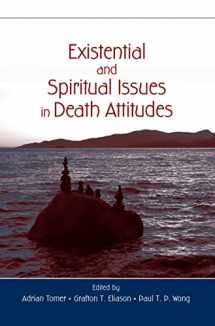
Existential and Spiritual Issues in Death Attitudes
Book details
Summary
Description
Existential and Spiritual Issues in Death Attitudes provides: an in-depth examination of death attitudes, existentialism, and spirituality and their relationships; a review of the major theoretical models; clinical applications of these models to issues such as infertility, bereavement, anxiety, and suicide; and an introduction to meaning management theory and how it can be applied to grief counseling.
In this new volume, death is treated both as a threat to meaning and as an opportunity to create meaning. The first section introduces theory and methodology to connect the latest empirical research on death attitudes to the philosophical/psychological existential and spirituality literature. Part II presents the latest empirical research on subjects such as end-of-life decisions and living with HIV. The final section considers therapeutic applications to issues including suicide, infertility, bereavement, and anxiety. The concluding chapter highlights the book’s common themes and provides questions to encourage further investigation of the most critical topics.
Psychologists, counselors, social workers, physicians, nurses, and religious leaders, as well as academics in the fields of psychology, gerontology, philosophy, religion, counseling, social work, sociology, and medicine will value this new resource. Main points summarize important ideas of each chapter, making it an appropriate text in courses on death and dying and/or and spirituality. Its clinical applications will appeal to practicing professionals.


We would LOVE it if you could help us and other readers by reviewing the book
Book review



